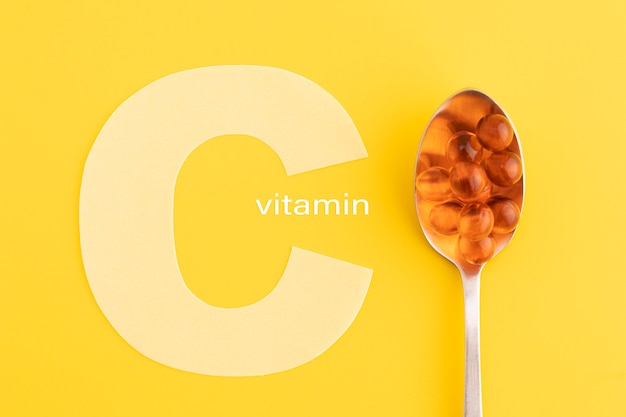
### What Is Vitamin B6?
Vitamin B6 is a crucial micronutrient that comprises six distinct compounds: pyridoxine, pyridoxal, pyridoxamine, and their respective 5′-phosphate esters (like pyridoxal-5′-phosphate or PLP, and pyridoxamine-5′-phosphate or PMP). As a water-soluble vitamin, your body gets rid of any excess through urine. Therefore, it’s essential to get enough of it daily since your body doesn’t store it. It’s also important to remember that all the B vitamins work together, so ensure your diet includes the entire vitamin B complex.
Top 6 Benefits of Vitamin B6
Vitamin B6 is vital for metabolic processes that promote brain health, strengthen the immune system, form blood cells, and synthesize proteins. It also helps regulate blood sugar levels. Here are the top six health benefits of vitamin B6:
# Promotes Healthy Metabolism
Vitamin B6 converts food into energy. Acting as a coenzyme—non-protein molecules that assist enzymes—pyridoxal-5′-phosphate (PLP) plays a role in over 100 enzyme reactions related to your body’s metabolism. These primarily involve building and breaking down proteins and amino acids. B6 controls metabolism by producing hormones like melatonin, which affects sleep; serotonin, which boosts mood; and norepinephrine, which releases energy.
# Supports Skin & Hair Health
Vitamin B6 contributes to clearer, healthier skin. Ensuring adequate intake can help reduce redness and swelling. This benefit extends to hair health, as B6 oxygenates hair follicles, leading to thicker, healthier-looking hair. Additionally, a study showed that intramuscular injections of B6 in people with alopecia reduced hair loss.
# Boosts Your Brain Power
Vitamin B6 aids in constructing neurotransmitters, the chemicals that allow nerve cells to communicate in the brain and nervous system. B6 enhances memory, learning, and focus, and can normalize mood, reducing issues such as depression, anxiety, and attention disorders.
# Balances Your Blood Sugar
Blood glucose, or blood sugar, is the body’s preferred energy source. Persistent high glucose levels can lead to insulin resistance and type 2 diabetes. A study found that vitamin B6 helped regulate blood glucose and insulin release in mice, suggesting it might also prevent pre-diabetic conditions in humans.
# Bolsters Your Immune System
Vitamin B6 supports the immune system by aiding the production of lymphocytes (white blood cells), which fight infection and injury. Deficiency in B6 has been linked to reduced white blood cell counts and a weakened immune response. Some evidence indicates that increasing B6 intake might improve immune function, though more research is needed.
# Builds Your Blood
Vitamin B6 promotes a healthy circulatory system. It helps make hemoglobin, the protein that carries oxygen in red blood cells, optimizing the blood’s oxygen transport to tissues. A deficiency can lead to a type of anemia similar to that caused by iron deficiency.
Causes of B6 Deficiency
Several factors can increase the risk of vitamin B6 deficiency:
– Vegan or vegetarian diets
– Crohn’s disease
– Rheumatoid arthritis
– Kidney disease
– Certain medications
– Alcoholism
While many people get enough B6 from diet, those who don’t consume meat, seafood, and eggs might be at risk. Supplements can help fill dietary gaps. Autoimmune disorders like Crohn’s disease or rheumatoid arthritis, kidney disease, certain epilepsy medications, and alcohol dependence can also raise the risk. Consult your healthcare provider if you think you’re at risk.
Symptoms of B6 Deficiency
Many may not show symptoms for years, but some common signs of low B6 levels include:
# Depression
Vitamin B6 is essential for neurotransmitter function, including the construction of serotonin. Inadequate B6 can result in depressive symptoms and anxiety.
# Low Energy
B6 is critical for energy production. Deficiency can lead to muscle fatigue and low energy as B6 helps convert food nutrients into adenosine triphosphate (ATP), the energy molecule.
# Heart Conditions
Vitamin B6 may protect against cardiovascular disease and stroke due to its role in reducing intracellular calcium ion overload, a factor in cardiovascular issues. Insufficient B6 increases the risk of high cholesterol, atherosclerosis, and heart attack, and can lead to stroke or dementia symptoms due to lack of oxygen to the brain.
# Other Symptoms
B6 deficiency can cause microcytic anemia (associated with small red blood cells). Infants and young children may show irritability or have seizures. Adults and children might also experience:
– Swollen, cracked tongue or lips
– Skin itchiness and eczema
– Insomnia
– Eye issues
– Asthma
– Suppressed immune function
– Reduced liver function
Vitamin B6 & Pregnancy
Adequate B6 intake during pregnancy is associated with healthier outcomes, including higher birth weight and lower rates of preterm birth, pre-eclampsia, and malformations. Some studies have found that taking 30-75 mg of B6 during pregnancy can reduce nausea and vomiting, though more evidence is needed.
How to Test for Vitamin B6 Deficiency
If you’re concerned about your vitamin B6 levels, ask your doctor for a test. Healthcare providers typically measure B6 levels through a blood plasma test for PLP (pyridoxal-5′-phosphate), although it can also be evaluated through a urine test. A PLP concentration above 20 nmol/L is considered sufficient; lower levels indicate a deficiency that should be addressed by adjusting your diet or taking supplements.
Top Foods High in Vitamin B6
Getting enough vitamin B6 through a balanced diet is relatively easy. While meat, particularly turkey breast and beef, has high levels of B6, vegetarians and vegans can also find this nutrient in certain vegetables, non-citrus fruits, and fortified foods. Some top B6-rich foods include:
– Sunflower seeds: 1 cup, 1.1 mg
– Chickpeas: canned, 1 cup, 1.1 mg
– Beef liver: pan-fried, 3 ounces, 0.9 mg
– Tuna: yellowfin, cooked, 3 ounces, 0.9 mg
– Salmon: sockeye, cooked, 3 ounces, 0.6 mg
– Chicken breast: roasted, 3 ounces, 0.5 mg
– Breakfast cereals: fortified with 25% of the DV for vitamin B6, 0.5 mg
– Potatoes: boiled, 1 cup, 0.4 mg
– Turkey: roasted, meat only, 3 ounces, 0.4 mg
– Bananas: 1 medium, 0.4 mg
– Bulgur: cooked, 1 cup, 0.2 mg
– Squash: winter, baked, 1/2 cup, 0.2 mg
– Avocado: 1/2 fruit, 0.2 mg
– Tofu: raw, firm, prepared with calcium sulfate, 1/2 cup, 0.1 mg
– Watermelon: raw, 1 cup, 0.1 mg
– Spinach: 1/2 cup, 0.1 mg
Vitamin B6 Dosage
Adults need about 1.2 mg to 2.0 mg of vitamin B6 daily, which can usually be met through a balanced diet. The recommended dietary allowances (RDA) vary by age and are provided by the National Institute of Health’s Office of Dietary Supplements.
# Recommended Dietary Allowances (RDA) for Vitamin B6
| Age | Male | Female | Pregnant | Lactating |
|——————|——-|——–|———-|———–|
| Birth to 6 Months| 0.1 mg| 0.1 mg| N/A | N/A |
| 7 – 12 Months | 0.3 mg| 0.3 mg| N/A | N/A |
| 1 – 3 Years | 0.5 mg | 0.5 mg | N/A | N/A |
| 4 – 8 Years | 0.6 mg | 0.6 mg | N/A | N/A |
| 9 – 13 Years | 1.0 mg | 1.0 mg | N/A | N/A |
| 14 – 18 Years | 1.3 mg | 1.2 mg | 1.9 mg | 2.0 mg |
| 19 – 50 Years | 1.3 mg | 1.3 mg | 1.9 mg | 2.0 mg |
| 51+ Years | 1.7 mg | 1.5 mg | N/A | N/A |
*Adequate Intake (assumed to be adequate for healthy individuals in this age range).
Vitamin B6 Side Effects & Safety
Vitamin B6 is a water-soluble vitamin, so excess amounts are usually excreted in urine. Side effects from supplements are rare but can include interactions with medications like those for tuberculosis and epilepsy. In rare cases, too much B6 can lead to loss of control of voluntary movements, gastrointestinal issues, and skin that is overly sensitive to light. It’s crucial not to over-supplement; consult your healthcare provider to determine the right amount for you.
Points to Remember
Vitamin B6 is essential for energy production and plays crucial roles in immune, brain, and cardiovascular functions. It also promotes healthy skin and hair. Most adults need about 1.3 mg per day, with higher amounts recommended for older individuals. While B6 is present in many foods, including meat and plant-based sources, supplements are also available. It’s best to consume all B complex vitamins together for optimal benefits.



